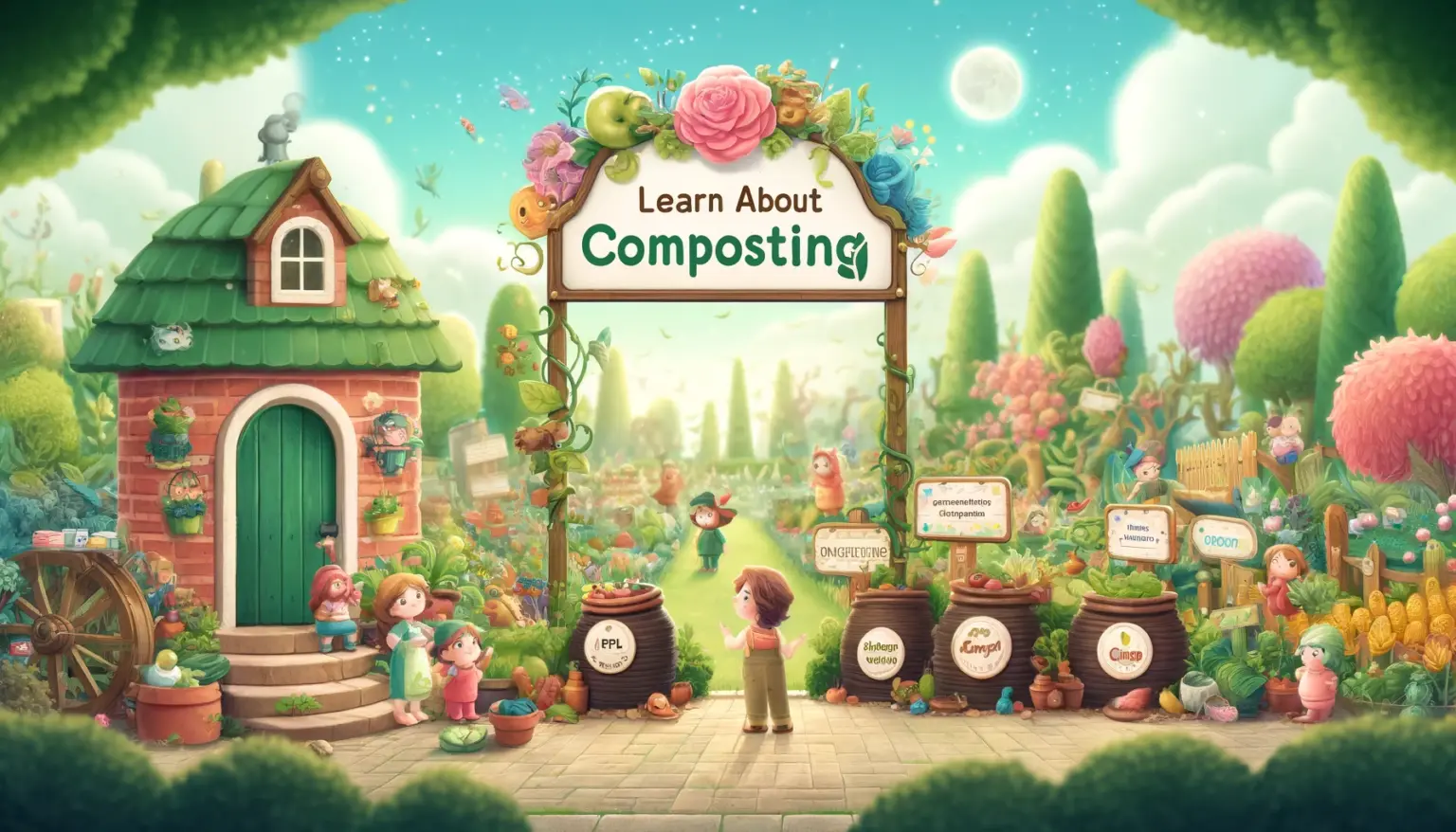Learn About Composting Day, celebrated annually on May 29th, is dedicated to raising awareness about the benefits and practices of composting. This day aims to educate people about how composting can transform organic waste into valuable compost, promoting sustainability and environmental stewardship.
As more people become conscious of their environmental impact, composting serves as a practical and effective way to reduce waste and enhance soil health.
What is Composting? Understanding the Basics
Composting is the natural process of recycling organic matter, such as leaves, food scraps, and garden waste, into a valuable fertilizer that can enrich soil and plants. Through the action of microorganisms, these organic materials break down into humus, a dark, nutrient-rich substance that significantly improves soil quality.
There are several methods of composting, each with its own benefits. Aerobic composting requires oxygen and involves regularly turning the compost pile to maintain air flow. Anaerobic composting, on the other hand, does not require oxygen and decomposes more slowly, often producing methane gas. Vermicomposting uses worms to speed up the decomposition process, producing highly nutritious worm castings. Understanding these methods allows individuals to choose the most suitable one for their needs and space.
The Benefits of Composting: Environmental, Agricultural, and Economic Advantages
Composting offers numerous benefits that make it an essential practice for both individuals and communities. Environmentally, composting reduces the amount of waste sent to landfills, thereby decreasing methane emissions, a potent greenhouse gas. By diverting organic waste from landfills, composting also conserves landfill space, prolonging their operational lifespan.
In agriculture and gardening, composting plays a vital role in enhancing soil health. It improves soil structure, moisture retention, and nutrient content, leading to healthier plant growth and increased crop yields. Economically, composting reduces the need for chemical fertilizers and saves money on waste disposal. Some communities even generate revenue by selling compost to local gardeners and farmers, demonstrating composting’s potential for economic benefit.
How to Start Composting at Home: A Step-by-Step Guide
Starting a compost bin at home is a straightforward process that anyone can undertake. Begin by choosing the composting method that best suits your space and needs. Aerobic composting requires regular turning and works well in larger outdoor spaces, while vermicomposting is ideal for smaller, indoor setups.
Select or build a compost bin that fits your chosen method. Commercial bins are available in various sizes, or you can create your own using materials like wood or wire mesh. Next, learn what materials can be composted. Green materials, such as fruit and vegetable scraps, provide nitrogen, while brown materials, like dry leaves and cardboard, provide carbon. Avoid composting meat, dairy, and oily foods, as these can attract pests and create odors.
Maintain your compost by balancing green and brown materials and regularly turning the pile to aerate it. This promotes faster decomposition and prevents issues like odor and pests. Troubleshoot common problems by adjusting the moisture content and material balance as needed.
Community Composting Initiatives: Building a Greener Future Together
Community composting programs offer a way for residents to come together to reduce waste and produce valuable compost. These initiatives often provide communal composting bins and resources for proper composting practices. Successful programs, such as those in urban neighborhoods or community gardens, demonstrate the power of collective effort in promoting sustainability.
To get involved in or start a community composting project, begin by reaching out to local government bodies, environmental organizations, or neighborhood groups. These entities can provide support, resources, and potential funding. By participating in community composting, residents not only reduce waste but also foster a sense of community and shared responsibility for the environment.
Educational Resources and Events: Learning and Growing Together
There are numerous resources available for those interested in learning more about composting. Books such as “The Rodale Book of Composting” and “Let It Rot!” offer comprehensive guides on various composting methods and practices. Websites like the EPA’s composting page provide valuable information and step-by-step instructions.
Workshops and events, particularly those held on Learn About Composting Day, offer hands-on experience and opportunities to learn from experts. Schools and educators can also incorporate composting education into their curriculum, teaching students the importance of sustainability from a young age.
Personal Stories and Case Studies: Real-Life Composting Successes
Hearing personal stories from individuals who have successfully integrated composting into their lives can be incredibly inspiring. For instance, Jane Doe, an urban apartment dweller, transformed her waste management by starting a vermicomposting system in her kitchen. This not only reduced her household waste but also provided rich compost for her indoor plants.
Case studies of businesses and farms also highlight the benefits of composting. A local farm might use large-scale composting to improve soil fertility and cut costs on fertilizers, showcasing how composting can lead to significant economic and environmental benefits.
Conclusion: Embrace Composting for a Sustainable Future
Composting is a simple yet powerful practice that can make a significant difference in environmental sustainability. Learn About Composting Day serves as a reminder of the importance of composting and encourages everyone to take part. By starting your composting journey today, you can help create a greener, more sustainable future for generations to come. Embrace composting and join the movement towards a more sustainable planet.
10 Interesting Facts About Learn About Composting Day:
- Learn About Composting Day is celebrated annually on May 29th.
- Composting reduces the amount of waste sent to landfills, cutting down on harmful methane emissions.
- Organic materials like food scraps and yard waste make up about 30% of what we throw away, all of which can be composted.
- Composting helps improve soil structure, allowing for better water retention and plant growth.
- Vermicomposting, a method using worms, produces nutrient-rich worm castings ideal for gardening.
- Community composting programs are growing in popularity, providing shared spaces for neighborhood composting efforts.
- Compost can reduce the need for chemical fertilizers, making gardening and farming more sustainable.
- Educational workshops and events on composting are often held on Learn About Composting Day to spread awareness.
- Successful composting requires a balance of green (nitrogen-rich) and brown (carbon-rich) materials.
- Many municipalities offer free or discounted compost bins to encourage residents to start composting at home.












Great tips and insights on Learn About Composting Day. Turn waste into green gold!
Composting day tips
Informative read!
Composting Day is a fantastic topic. This article provides excellent insights on turning waste into valuable compost.
Learn About Composting Day is important for sustainability. This piece captures the significance of turning waste into green gold well. Thanks for the informative read!
This page about Learn About Composting Day is very informative and engaging. It offers a detailed look at the importance and benefits of composting, along with some interesting facts and tips. The information is well-organized and easy to read, making it a pleasure to navigate. This site is a fantastic resource for anyone wanting to learn more about composting.
This page on Learn About Composting Day is fantastic. It outlines the benefits and methods of composting in a very engaging manner. The facts and tips are practical and inspiring. The site is user-friendly and informative. A great resource for eco-conscious individuals.